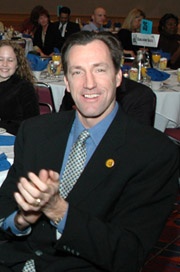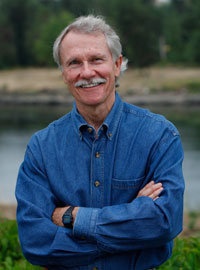PORTLAND, Ore. (AP) -- After months of Democrats and Republicans dominating the news about this year's campaign for governor of Oregon,
|
third-party challengers and independent candidates now get their shot.
At least three of the six minor parties in Oregon could field governor candidates, and a Portland lawyer is thinking about a run as a non-affiliated candidate -- all giving voters more choices and perhaps giving the major-party candidates Republican Chris Dudley and Democrat John Kitzhaber some political headaches.
As is often the case in Oregon elections, there's a chance that third-party and independent candidates will influence how the campaign unfolds. They can either siphon votes and spoil one candidate's chances, or they can influence one or both of the major-party candidates to change campaign strategies.
This year, a law adopted by the Legislature in 2009 effectively gives the major-party candidates a chance to run under the banner of minor parties, as well.
For voters, this means ballots in what's called ``fusion voting'' may look slightly different.
The Democratic nominee, Kitzhaber, says he'll seek nomination as the Independent Party candidate and expects he may win endorsement from
|
the union-backed Working Families Party. That means his name could appear on the ballot with designations of three parties.
The Republican nominee, Dudley, refused comment on his strategy about fusion voting.
Tuesday was the first filing day for third-party and independent candidates. Their deadline is Aug. 24.
Three parties have conventions this month and expect to nominate candidates for governor -- Pacific Green, Libertarian and Constitution. Other parties have conventions scheduled later or, like the Progressive Party, said they're still thinking about it.
Another potential candidate is Portland lawyer John DiLorenzo, who has talked about getting on the ballot as an independent but said last week he has not made up his mind.
Candidates not affiliated with a political party can get on the statewide ballot in two ways, according to the secretary of state's office: Holding a convention of 1,000 voters or collecting more than 18,000 signatures.
In recent races, Oregon Republicans have suffered more than Democrats when third-party or independent candidates enter the fray, said Bill Lunch, chair of the political science department at Oregon State University. He cited two examples:
-- In 1990, independent candidate Al Mobley siphoned off conservative voters by highlighting centrist Republican Dave Frohnmayer's moderate views on social issues. That helped Democrat Barbara Roberts turn a double-digit deficit in September into a narrow victory in November.
-- More recently, the Constitution Party candidate for U.S. Senate, David Brownlow, took 5.2 percent of the vote in 2008 -- a race Republican incumbent Gordon Smith lost by less than 4 percentage points to Democrat Jeff Merkley.
The race between Dudley and Kitzhaber could well be close, said Portland pollster Tim Hibbitts.
``I expect it to be a competitive race this year,'' Hibbitts said. ``Republicans have a chance, but it doesn't mean they'll do anything with it.''
Both the major-party candidates staked out middle-of-the-road positions, which gives Dudley a challenge on the right.
``Chris will need to assure that group of voters, the tea party voters, that he actually represents their principles and values greater than the minor-party candidates,'' said Jeff Kropf, a former legislator and current state director of the conservative national group Americans for Prosperity.
Kropf, a Dudley supporter, said Dudley could run for the nominations of minor parties like the Constitution and Libertarian parties.
The possibility of third-party or independent candidates could raise questions for Oregonians oriented toward the tea party movement on the right.
``That becomes the key tea party question: What are they going to do?'' said Jim Moore of the Pacific University political science department. ``If they are people who have been involved in politics for a while, say, disaffected Republicans, they're going to vote Republican'' and support Dudley.
But the first-time voters, like the kind of voters the Mobley campaign attracted 20 years ago, will probably reject Dudley's moderate views and might find a third-party candidate to rally around, Moore said. In that case, he said, they might well have an influence.
One tea party organizer, Clyde Burke, said he's going to back Dudley on pragmatic grounds.
``You know, we've got to look at the bottom line,'' Burke said. ``And the bottom line is that third parties are not going to make it.''

 Chris Dudley
Chris Dudley John Kitzhaber
John Kitzhaber


















































































































































































































































































































